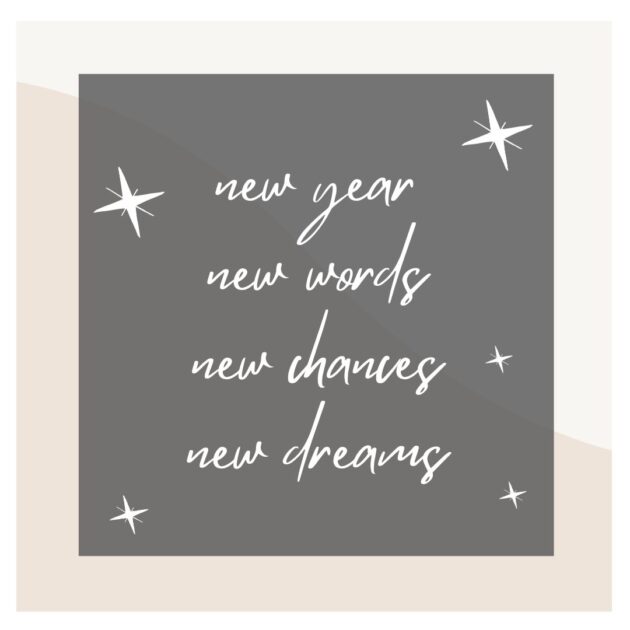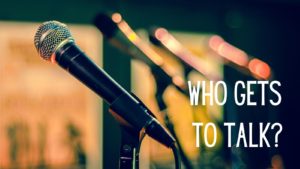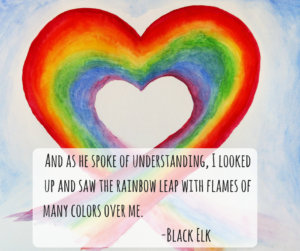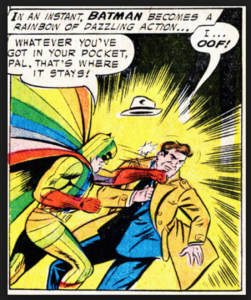 One thing I did last year with my writing community was implement a planning session at the beginning of the year, with a six-month check-in midway through the year. We talked about what was coming up during the year, what we wanted to achieve, what might derail us, and strategies for making the most of the year.
One thing I did last year with my writing community was implement a planning session at the beginning of the year, with a six-month check-in midway through the year. We talked about what was coming up during the year, what we wanted to achieve, what might derail us, and strategies for making the most of the year.
For me, that worked very well, and it’s helped even more to add “Motivation Monday” sessions to my school, a weekly online session where we talk about what’s coming up that week and what problems we’re facing as well as share coping strategies and productivity hints. This year I’m doing it again, with quarterly check-ins, because it worked. I realized I got a LOT done last year once I sat down and listed it all. Looking back at the list of what I accomplished, I feel a lot less guilty about the times I just goofed off and played Stardew Valley or Baldur’s Gate 3.
Want to try this for yourself? Here’s the questions I’m asking people to think about this year, along with my answers to each one. (If you are interested in joining us for the planning or motivation sessions, here’s details about the Patreon campaign.)
2024 Review (Don’t worry if a question isn’t applicable! I’ve been thorough and used the list I use)
What did you get accomplished in 2024 and how do you track these things?
I had a new book, RUMOR HAS IT published in hardback (recommended by Bookish, Gizmodo, Publisher’s Weekly, Reactor) and my book DEVIL’S GUN appear in trade paperback, finished two books (SAHALAH and WINGS OF TABAT), taught a bunch of classes, traveled to Orlando, Savannah, Atlanta, New York City, Bellingham, Indianapolis, Surrey, B.C.and Chicago. Wrote three stories and published four.
I track stuff mainly through my big schedule spreadsheet and Scrivener, but I did also track my reading and movies I watched in a blog post. It’s not the end of the year yet, but I have read close to 200 books this year, and in looking at it, I’m pleased to see I read fairly diversely as well.
What did you write in fiction?
Two novels and three stories
What did you write in nonfiction?
An on-demand class (Eating Your Words), some Medium articles (Writing Speculative Stories, What’s Up with the Hugo Awards This Year, and Thoughts on F&SF Awards, Being Desired at Sixty, Solo in the Theater, Thoughts on Recent News of Neil Gaiman, and What Is Cozy Fantasy: Definition and Suggested Reading) and some blog posts, including I am Cat Rambo and This is What I Believe.
Interviews included author spotlight for Lightspeed by Alex Puncekar, a blog post for Jennifer Brozek, an interview with C.M. Caplan, an interview with Nora Peavey, talking with Paul Semel about RUMOR HAS IT as well as DEVIL’S GUN, and the Walter Day Trading Card site and a birthday write-up on File770.
What other art did you make?
I decorated a guest room and drew some cartoons, inspired by Lynda Barry’s book on cartooning.
What did you edit?
I edited four novels for Arc Manor, including ones by Yaroslav Barsukov, Randee Dawn and Ben Bova. I edited a bunch of stuff for private clients, including three novels and a number of short stories.
What appearances did you make, virtual and live?
- Taught a class on immersive worldbuilding for Authors Publish.
- Appeared on these podcasts: Author 2 Author podcast; Better to Podcast podcast; Book 101 Review Part 1, Part 2; Cascade Writers Podcast; DitchDiggers podcast; Fermented Fiction podcast; Going North podcast; If This Goes On (Don’t Panic), Teatime with Miss Liz; the Nerd Count podcast; SciFi4Me TV; SFF Addicts Podcast both in an interview and talking about Omniscient Narration and POV; the Skiffy and Fanty show; Tech Founders Podcast; Writers with Drinks podcast.
- Did online reading for Story Hour
- Appeared live at the International Conference for Fantasy in the Arts, where I did a reading.
- Appeared live at BookCon, South Bend Public Library.
- Signed at: Main Street Books in Lafayette, Indiana; Gathering Volumes in Maumee, Ohio, and Barnes & Noble in Mishawaka, Indiana.
- Appeared live at GenCon, where I taught three classes, did two signings, and participated in five panels.
- Taught live at the Cascade Writers Workshop in Bremerton, Washington and appeared on several panels there.
- Interviewed Tananarive Due, Alex Jennings, and Peng Shepherd for episodes of If This Goes On (Don’t Panic).
- Appeared live at Brain Lair Books book club, South Bend, Indiana.
- Did a panel for Flights of Foundry.
- Taught a live workshop on Flash Fiction at the South Bend Public Library.
- Taught live at the Surrey International Writers Conference.
- Taught live at the Wayward Wormhole Short Story and Novel workshops.
- Taught an extended short story workshop and a novel workshop online.
What publications appeared?/What sales did you make?
- “Twas Brillig,” a Cthulhu/Alice in Wonderland Mash-up, in Into the Cthulhu-Verse.
- “Scary Monsters, Super Creeps” in The Neurodiversiverse: Alien Encounters.
- “Conversation with a Dragon” in Beneath Ceaseless Skies (also did the narration).
- Resistance in Lightspeed Magazine.
- “Pots of a Different Color” in InterDimensions.
What other things were notable?
- Got a new website (this one), which was a substantial amount of work.
- Featured guest blog posts from Jennifer Brozek, Anthony Francis, Dan Rice, and Clara Ward.
- Served as a mentor for SFWA again, and made a really nice friendship as a result.
- Made some other great new friends and spent quality time with good friends and family.
- Ran a D&D campaign and played in three others.
- Re-joined and became more active in the Unitarian Church.
- Went to Vegas and saw the Cirque du Soleil Beatles Experience and OmegaMart.
- Went to NYC and saw several Broadway shows.
- Went to a terrific outdoor concert by the South Bend Symphony.
- Rescued a cat and ended up having him join the household (BabyBear).
- Took golf lessons.
- Kept most of my houseplants thriving and planted four yellow rose bushes in the back.
Of the accomplishments of 2024, what are the top 3-5 that you had?
Finishing not one but TWO books!
Co-ran a writing workshop that was SPLENDID
Witnessed a total eclipse
Ran the craft book and short story discussion groups, as well as an assortment of other Rambo Academy events that enriched my writing.
What are 1-3 of the worst writing-related disappointments?
Mainly I didn’t get some short stories in to various anthology calls. I also have a story that has been sitting in limbo for FOREVER and I’d really like to see it come out. I also want to do another collection, but that requires me getting my butt in gear and sorting through all the recent stories.
What did you do in 2024 that had the most positive impact on your life?
I started being serious about taking Tuesday and Thursday off since most weekends I teach and/or write. I can write on those days if I want to, but I don’t have to do paperwork, teaching stuff, or Patreon things. Often I go to see a matinee, which resulted in seeing a lot of movies I wouldn’t have normally seen. This really recharges me and keeps days from blurring together.
2025 Planning:
What are 3-5 things you want to accomplish overall in 2025?
- Write the next space opera and get started on the stand-alone horror novel.
- Finish several stories and a novelette currently in mind.
- Run a stellar writing class programming track at Worldcon.
- Keep growing my Patreon and the Rambo Academy, including the Wayward Wormhole.
- Continue to build my finances for retirement, although I don’t intend to stop writing and teaching anytime soon.
- I’d like to do more nonfiction writing as well. (I know that’s six!)
What’s one thing you’d like to successfully incorporate into your work routine?
I would like to be better with my to-do list.
How do you want to refine or improve your tracking system?
I’d like to keep some electronic notebook where I put down what I get done each day.
What’s one pleasure that you don’t have enough time for? Can you use it to reward yourself for hitting goals?
I really love rock-hunting, and driving up to Michigan to find fossils on the shore is one of my favorite things. I’m going to schedule a monthly trip to do so that will be my reward for monthly goals.
What three things are likely to derail you in 2025? How can you plan to diminish their impact?
I am a programming lead for WorldCon, and that will eat up some time. I’m trying to stay on top of items right now and also not plan anything else for August.
Doing the dev edits for WINGS OF TABAT, although I hope that will be an easy task. Turning them around quickly rather than procrastinating would be good.
Doing the marketing for the release of WINGS OF TABAT. Since it’s the last book in the series, I’d like to pull out all the stops. That requires being organized and doing a lot of planning beforehand.
What’s going to bring you hope in 2025?
My community – friends, family, students, mentees, fellow writers. That’s what keeps me going.
What are you looking forward to in 2025?
Writing my current projects, which I’m stoked about. An upcoming trip to the Barbados. Chances to visit good friends and spend time with family. Having WINGS OF TABAT come out and marketing it. Being Guest of Honor at Confluence. WorldCon in Seattle. Seeing if those yellow rose bushes bloom this year and getting a chance to sit out in the yard and watch fireflies appear in the evening. Seeing what happens with the fantasy novel I just turned in to my agent (*fingers crossed*). Continuing to live a happy and productive life that gives back to the world.
What’s going to be your theme song/ slogan /image to keep you going in 2025?
I am still thinking about this one.







